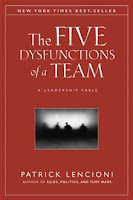Below is a record of what I read in the month of January 2011. And to understand the ratings, here is my standard.
5 stars -- I loved it; highly recommended
4 stars -- A great read; recommended; will most likely read it again
3 stars -- Average read; most likely will not read it again
2 stars -- Didn't care much for it
1 star -- Painful, waste of paper
1.
Hearing Jesus Speak Into Your Sorrow, by Nancy Guthrie. This is an excellent book by a mother who lost several children. She doesn't sugar coat the pain of living in a broken world, and she certainly doesn't spout platitudes. Here you will find a sure guide for journeying through pain and loss, and still seeking God in the process. While I have a few quibbles with how she worded a few things, I have a much more than a little admiration for the ways in which she worded so much of what she says.
4.5 stars
2.
Servant Leader, by Ken Blanchard. A good little book with some practical advice about leadership characterized by servanthood. He strained some of the biblical texts, I thought, to support what he wanted to say, but he had some good things to say.
3 stars
3.
Children of Men, by PD James. I went into this book wanting to be intrigued by the story. The first chapter is excellent as James sets up a world in which humanity has lost the ability to have children. Fascinating premise. But after chapter 1 it went downhill. My wife has a hundred page rule on a book--if the author doesn't do it for her by then, she puts it down. I have a 50 page rule. I gave James about 85 pages and then started skimming desperately looking for the story to pick up. Note to James: I don't care about what a man's earlobes look like, nor the kind of eyelashes he has, nor about his lips, his chin, his eyebrows, etc. Get on with the STORY. I'll probably give James another shot with a different book down the road, if only to make my wife happy. Sum: 1 chapter = brilliant. Next 10 chapters = painful. Remember, I wanted to like this book.
1 star
4.
The Five Dysfuntions of a Team, Patrick Lencioni. I started this in December & finished it on the first day or two of the year. A good little book about leadership that is told via the form of a narrative followed by a section explaining the principles. Much more entertaining than James! And the narrative wasn't that great. He talks about the absence of trust, fear of conflict, lack of commitment, avoidance of accountability, & inattention to results. Good stuff that I'll using in team building.
3 stars
5.
Who Made God: Searching for a Theory of Everything, by Edgar Andrews. Let me just start by saying
10 stars (okay, I know I'm using a 5 star rating standard, but I really enjoyed this book). Edgar is a brilliant man (with the credentials to back it up) who takes the whole issue of metaphysics, physics and biology and makes it accessible to the non-philosopher & non-scientist. And that's no easy task, but Edgar does it with wit & humor. His chapter introductions are worth the price of the book. While showing that the New Atheists are offering nothing new but repackaged silliness, he takes on the fairytale of Darwinian evolution and has some critical comments for the Intelligent Design camp as well. Check out
Edgar's website as well as
Challies' review. I will read this one again, and soon.
5 stars
6.
The Best Kept Secret of Christian Mission, by John Dickson. This is an excellent book--one I wished I had written because he says everything I would have wanted to say about the issue of 'promoting the Gospel with more than our lips' (the subtitle of the book). Dickson contends that it is every Christian's duty to promote the Gospel of Jesus Christ, but not all do it in the same way. Here are some of the many ways he suggests: promoting the Gospel with our prayers, our money, through the works of the church, through Christian behavior (being beautiful, he says, and he means by that something like 'living a beautiful and attractive life), through our public praise, through our daily conversation. Endorsed by all the right people (NT Wright, Christopher Wright, Alister Begg, Ravi Zacharias, Richard Bauckman, Jim Belcher, Tremper Longman, Timothy George--and now yours truly), this book is a must-read for believers (I know, the phrased is over used, but I plan to implement this book in my own ministry and leadership training).
5 stars
7.
Of Mice & Men, by John Steinbeck. I haven't read this classic story since high school. I enjoyed it this time around, even though I knew the ending that came all too quickly. Who cannot love Lennie and his dream of feeding rabbits with his buddy George. Tragic story, but good story telling nevertheless.
4.5 stars
My wife brought home the library (she's a great wife)
the DVD with Gary Sinese (George) & John Malkovich (Lennie). I somehow didn't get the memo that it was released in 1992. While some of the transitions were a bit wooden & I wished some of the scenes were a bit more fleshed out, this was a good film. Sinese is one of my favorite actors (since I first saw him on the silver screen in Forrest Gump), and Malkovich played Lennie to perfection.
4 stars
Scripture completed: Genesis, Daniel









































